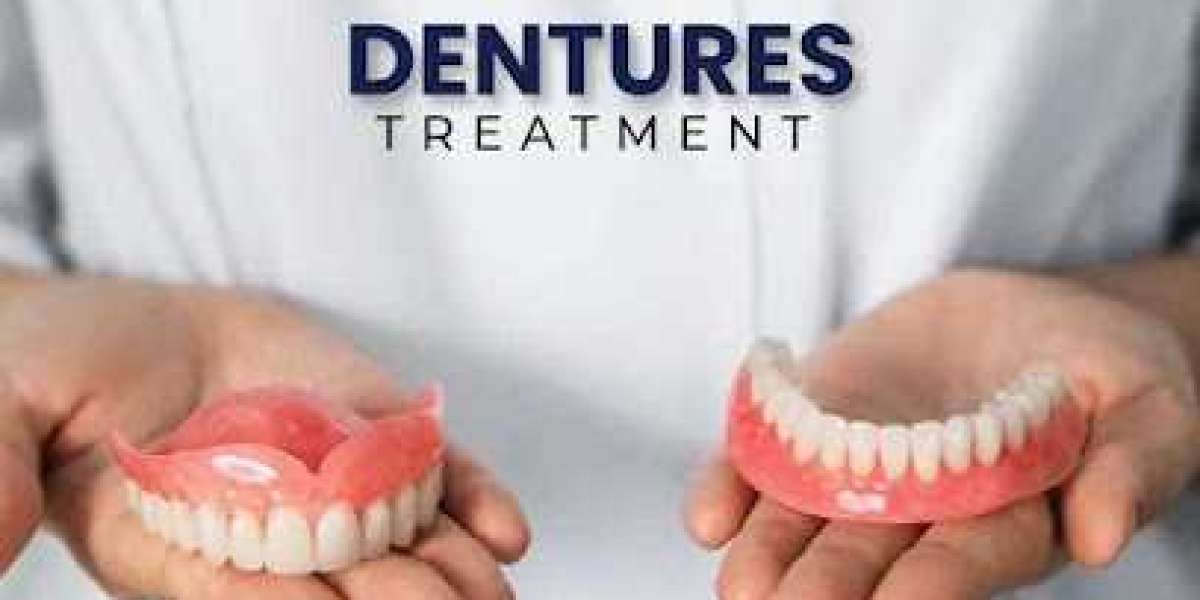Introduction to Dental Implants and Full Dentures
Losing teeth can have a significant impact not only on your appearance but also on your ability to speak and eat properly. Fortunately, dental technology offers solutions like dental implants and full dentures to help restore both function and aesthetics. Each of these options comes with its own set of advantages, and deciding the best one depends on various factors like dental health, budget, and long-term goals.
What Are Dental Implants?
Dental implants are a popular and reliable solution for missing teeth. They are composed of three main parts:
- Implant Post: This titanium post is inserted into the jawbone and acts as the tooth root.
- Abutment: A small connector placed on top of the implant post that holds the crown.
- Crown: A custom-made replacement tooth that fits over the abutment, providing a natural look and function.
Implants integrate with your bone through a process called osseointegration, making them a durable, long-lasting solution.
The Dental Implant Procedure
Initial Consultation
Before the procedure, your dentist will assess your dental health and suitability for implants. This may involve taking X-rays or a CT scan of your jaw to ensure there’s enough bone to support the implant.
Implant Placement Surgery
The surgical procedure begins with the implantation of the titanium post into the jawbone. It typically takes place under local anesthesia or sedation. After the post is inserted, you’ll need several months to heal and allow the implant to fuse with the bone.
Attaching the Abutment and Crown
Once the implant has integrated with your bone, a second minor surgery is performed to attach the abutment. Finally, a customized crown is placed on top of the abutment to complete the implant.
Benefits of Dental Implants
- Durability: Dental implants can last many years, even a lifetime, with proper care.
- Natural Look and Feel: Implants mimic the look and function of natural teeth, offering the most realistic aesthetic.
- Preserving Jawbone Health: Unlike dentures, implants stimulate the bone, helping to prevent bone loss, which can occur when teeth are missing.
Full Dentures: An Alternative to Dental Implants
Full dentures are another option for individuals missing all or most of their teeth. Unlike dental implants, full dentures are removable prosthetics made to fit snugly over your gums. These can be classified into three main types:
- Conventional Dentures: Fitted after the gums have healed, typically within 8 to 12 weeks post tooth extraction.
- Immediate Dentures: Placed right after tooth extraction and can be adjusted over time as the gums heal.
- Implant-Supported Dentures: These use dental implants to help stabilize the denture.
Advantages and Disadvantages of Full Dentures
Advantages:
- More affordable than dental implants.
- Easy to remove for cleaning.
- Can replace multiple missing teeth at once.
Disadvantages:
- They may feel uncomfortable initially and require adjustments.
- Full dentures can slip or shift out of place while speaking or eating.
- They require ongoing maintenance and adjustments over time.
Full Dentures Procedure
Initial Consultation for Full Dentures
Your dentist will take molds or impressions of your mouth to create custom dentures that fit snugly over your gums. This step may also involve checking the alignment and bite to ensure proper fit.
Fitting and Adjustments
When you get your first set of dentures, a follow-up appointment is necessary to make adjustments for comfort and proper functionality. During this period, it’s common to experience minor discomfort as your gums get accustomed to the dentures.
When Should You Consider Dental Implants or Full Dentures?
Dental Implants: Ideal for healthy individuals who want a permanent and natural-feeling solution. Implants may be preferred when you want to avoid the hassle of removable dentures and when preserving jawbone health is a priority.
- Full Dentures: Suitable for individuals who have lost all or most of their teeth and may not have enough bone density for implants. Dentures are also more affordable upfront, though they may require future replacements.
Cost Comparison: Dental Implants vs Full Dentures
Dental implants generally come at a higher initial cost, ranging from PKR 80,000 to PKR 150,000 per implant, depending on location and specialist. Meanwhile, full dentures are more affordable, with prices ranging from PKR 20,000 to PKR 50,000 per set, though implant-supported dentures can cost more.
Aftercare and Maintenance of Dental Implants vs Full Dentures
Dental Implants:
Proper oral hygiene, including brushing and flossing, is essential for long-term maintenance. Regular check-ups are required to ensure the implant and surrounding tissues remain healthy.
Full Dentures:
Dentures require regular cleaning and soaking when not in use. They should be handled with care, as they can become fragile over time.
Conclusion
Choosing between dental implants and full dentures comes down to individual needs, preferences, and health conditions. For those looking for a long-lasting, natural-looking solution, dental implants are an excellent choice. However, if you're looking for a more affordable and non-invasive option, full dentures could be the answer. Always consult with your dentist to determine the best oral bracesoption for your unique case.
FAQs
1. How long does the dental implant procedure take?
The procedure can take several months, as it involves surgery, healing, and the placement of crowns.
2. Can I eat normally with dentures?
It may take time to adjust, but once fitted properly, you can eat most foods. Hard and sticky foods should be avoided.
3. Do dental implants require special maintenance?
No, they require regular brushing, flossing, and routine dental visits.
4. Are dentures as effective as implants in terms of chewing and speaking?
Implants offer a more natural, stable feel, while dentures may shift and feel less secure when chewing or speaking.
5. Can I switch from full dentures to dental implants?
Yes, dental implants can be a good long-term replacement for full dentures, especially for those seeking better stability and comfort.













